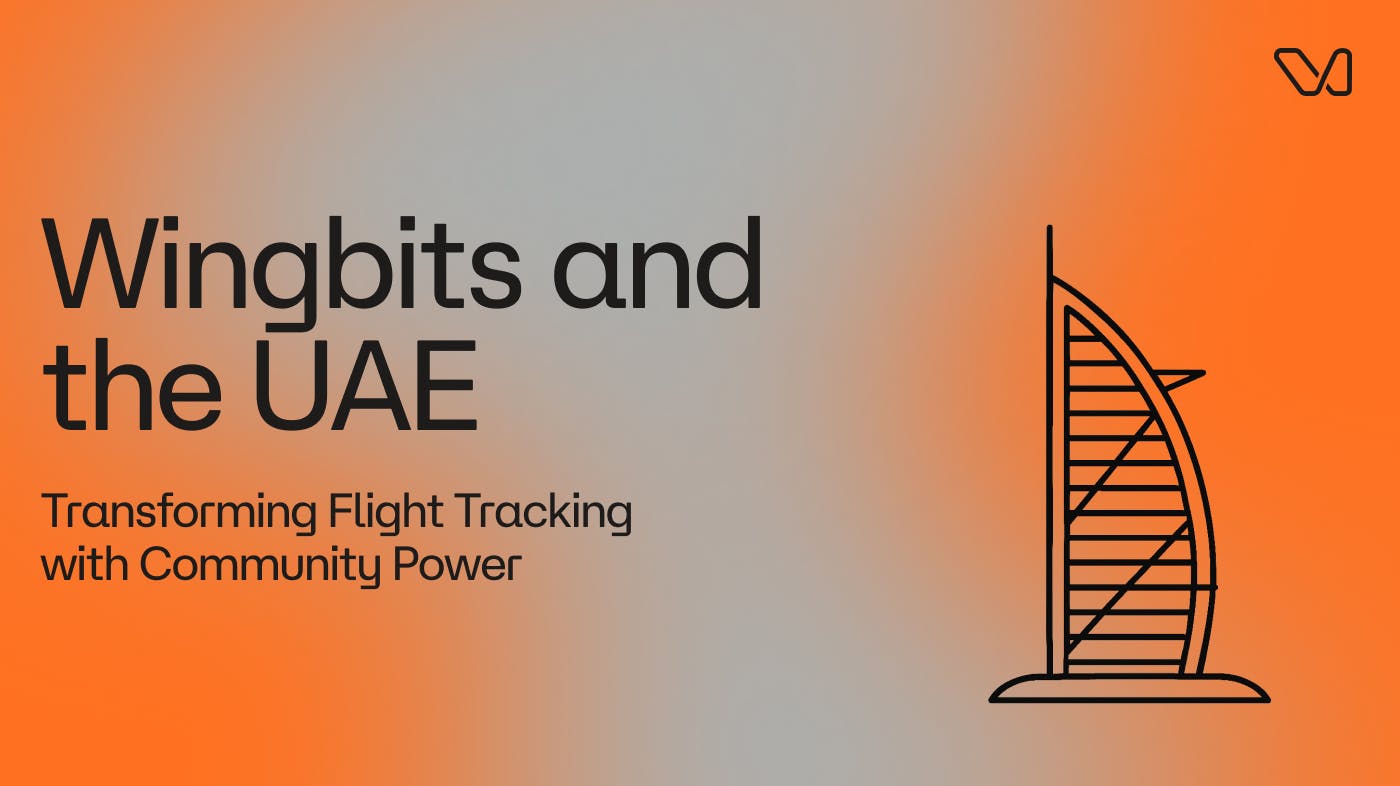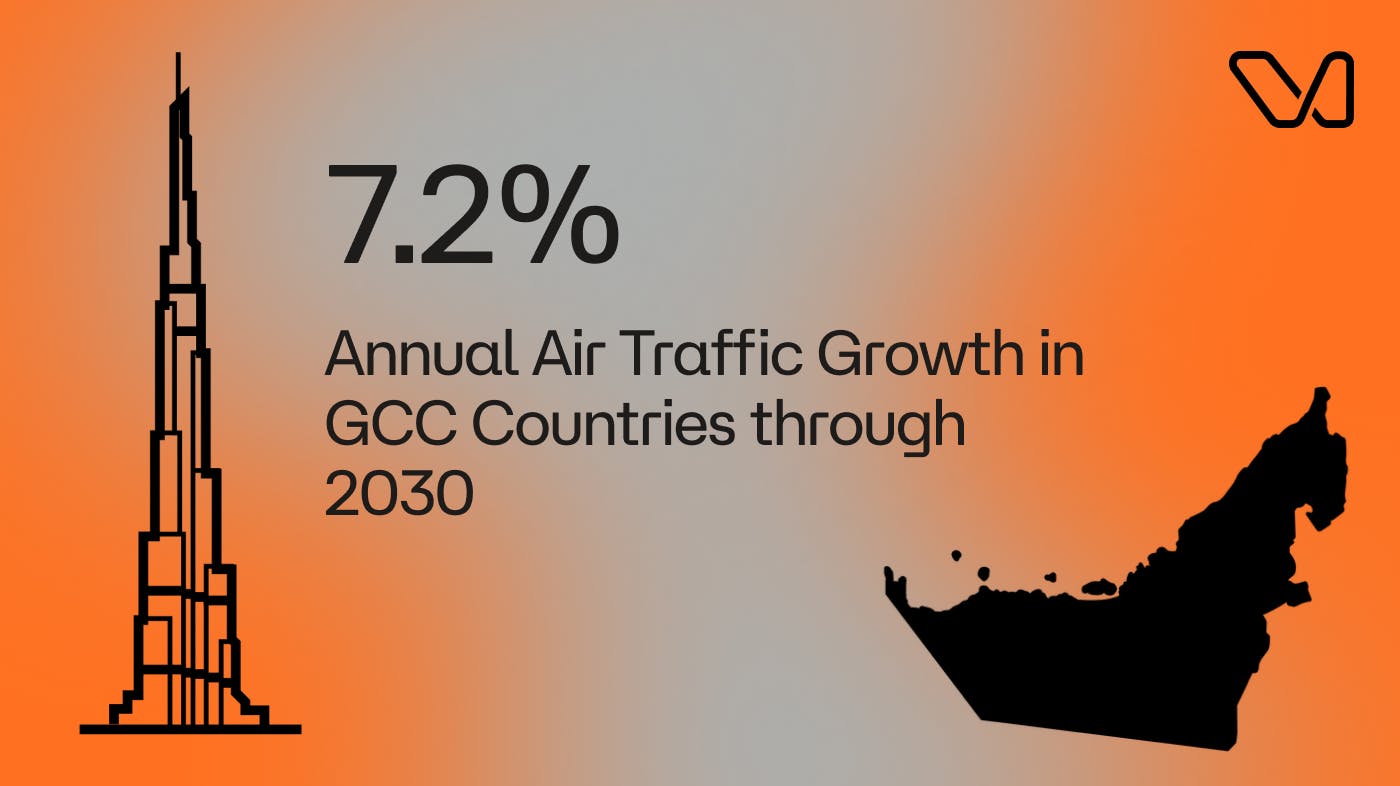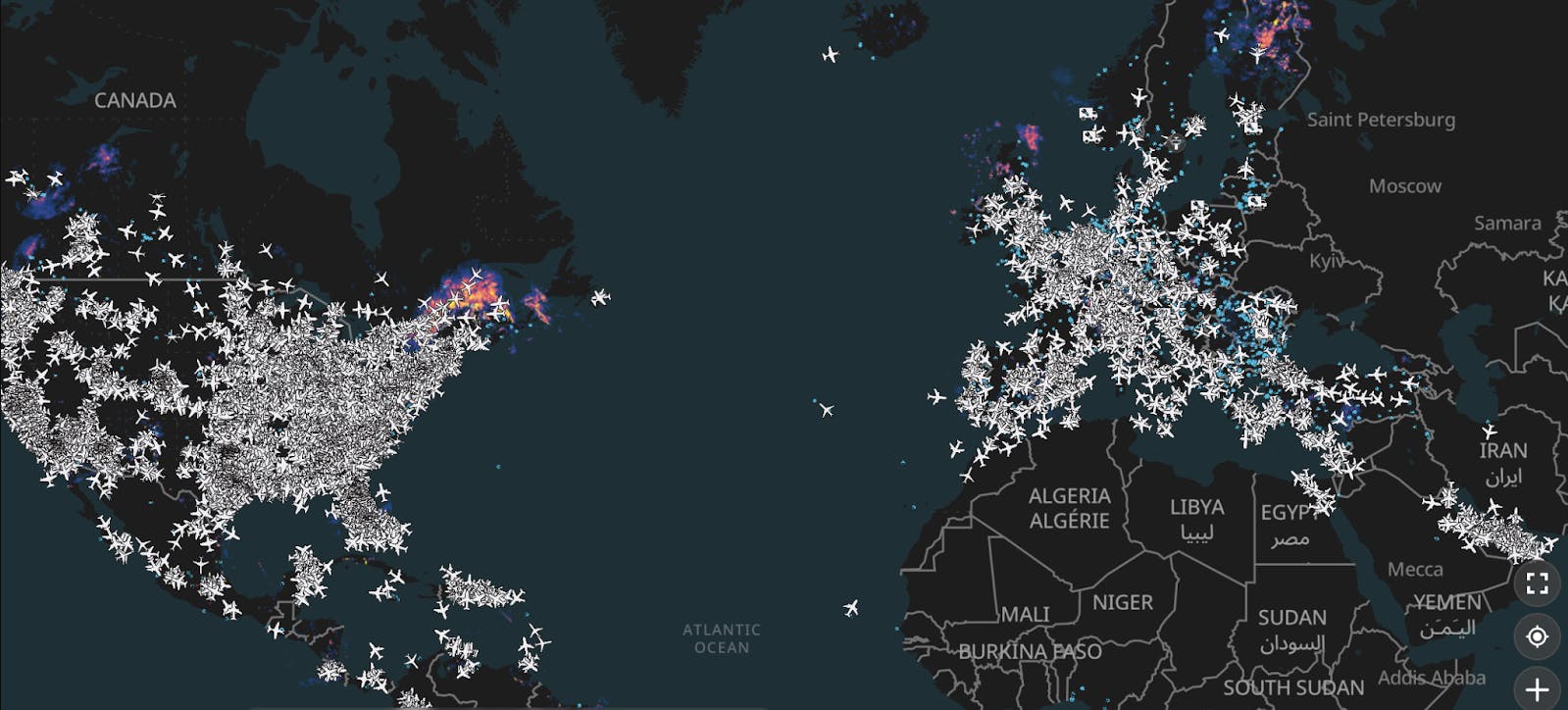Wingbits and the UAE: Transforming Flight Tracking with Community Power
Yanal Hammouda
June 12, ‘25

The Arabian Gulf is fast becoming the world’s aviation hotspot. Dubai International Airport welcomed 87.8 million passengers in 2024, and Saudi Arabia’s Vision 2030 is fueling a $100 billion push to reshape the region’s skies. With air traffic in the Gulf Cooperation Council (‘GCC’) regions expected to grow by 7.2% annually through 2030, according to the International Air Transport Association, the region needs smart, scalable ways to manage its increasingly busy airspace.
Why the Gulf Needs Smarter Flight Tracking
That’s where Wingbits comes in. We are shaking up flight tracking with a community-driven approach called a Decentralized Physical Infrastructure Network (DePIN). Unlike traditional flight tracking networks that depend on unpaid volunteers, Wingbits introduces a new model, one that rewards individuals for setting up and operating tracking stations. It’s a forward-thinking approach that reflects the UAE and the broader GCC region’s ambition to lead in both aviation and advanced technology.
Consider the developments already underway. In March 2025, the UAE unveiled a $35 billion expansion plan for Al Maktoum International Airport, which is on track to become the largest airport in the world. However, this isn’t just about scale, it’s about creating smarter, more connected aviation infrastructure powered by data, predictive maintenance, AI, and personalized travel technologies.

Wingbits: A Community-Powered Solution
Traditional flight tracking has its limits. It depends on enthusiasts who set up ADS-B receivers, receiving with no reward beyond a free subscription. This leads to uneven coverage, an abundance of receivers in cities, a lack thereof in remote areas, and spotty data quality. For a region with booming air traffic, that is a problem.
We are building a flight tracking network powered by everyday people. Contributors set up tracking stations in smart, strategic locations and earn rewards based on the quality of the data they provide. Due to our performance-based reward system, we are on track to achieve the same coverage as leading providers - with only a tenth of the stations. So far, we have already reached 75% of their coverage using just plug-and-play hardware and a fraction of the infrastructure. And we are just getting started. With plans to deploy over 10,000 new stations globally by the end of the year, we’re growing nearly six times faster than any flight tracking network that preceded us.

The UAE: A Launchpad for Innovation
Our recent trip to Dubai for Token2049, a major Web3 event, showed us just how much potential the UAE has. The overall atmosphere in Dubai was charged with innovation, especially around the intersection of blockchain and real-world applications. With progressive regulations and a clear vision to become a global hub for both aviation and blockchain, Dubai is an ideal launchpad for Wingbits. This was clear in conversations around emerging trends, such as digital public services, expanding blockchain adoption, and ambitious smart city initiatives; all of which create fertile ground for a project like ours. The DePIN (Decentralized Physical Infrastructure Networks) sector alone has surpassed $50 billion in value, and Wingbits is well-positioned to be a leader in this space.
While in Dubai, we connected with a wide range of stakeholders, from private sector leaders and government officials to major investment groups, strategic partners, and prospective clients. These conversations gave us the opportunity to share the Wingbits vision and demonstrate its potential impact in addition to its traction. The reception was incredible. People didn't just grasp what we were doing; they were genuinely excited, seeing Wingbits as a game-changer in an industry that did not innovate for decades.
This enthusiastic reception has reinforced our confidence that expanding in the UAE will set a strong precedent, one that can be scaled across the wider GCC and eventually throughout the MENA region.
Crucially, Wingbits is proud to be among the first DePIN projects to genuinely prioritize localization in the MENA region. Recognizing the importance of cultural and linguistic relevance, we are actively building our community using Arabic, adjusting our narrative, and tailoring our knowledge hub and manuals to assist with all logistical arrangements. This includes everything from educating about the project to facilitating the acquisition of necessary devices. Our goal is to ensure a smooth, plug-and-play experience for our community to start earning rewards.
Our efforts have already led to significant expansion: we proudly have active stations across the UAE, Oman, Saudi Arabia, Kuwait, Bahrain, Jordan, Palestine, Turkey, Qatar, Iraq, Lebanon, Somalia, and Morocco. This widespread presence means Wingbits is now effectively tracking flights across the entire region, with continuous efforts to expand even further.

Building the Future of Airspace in MENA
Wingbits isn’t just about today’s flights, it’s ready for tomorrow’s airspace. The UAE is leading the way with plans for air taxis, like Abu Dhabi’s goal to launch electric flying taxis, or Dubai’s deal with Joby Aviation to start services by early 2026. Our hardware can track these new aircrafts, helping integrate them safely into busy urban skies. And while working with our hardware partners, we made sure our devices can get data from signals like ADS-B, Drone Remote ID, and GNSS. As drones take off for deliveries, cleaning, or emergency services, Wingbits is building tools to keep airspace safe and efficient.
For the UAE in specific and the GCC in general, Wingbits is more than just a new flight tracking network, it’s a way for people to come together and help improve the region’s aviation system. It allows residents to get involved, earn rewards, and contribute to better, safer flight data. As the Gulf invests heavily in smart cities and digital upgrades, Wingbits offers a straightforward way to stay connected with the rest of the world.
The real test for any new idea is turning talk into results. Wingbits is already showing that a community-based approach can do better than older systems and fits well with the region’s goals for modernizing aviation. What makes Wingbits unique is that it’s the first flight tracking company to reward its community and shake up the industry. So far, the project raised $10 million in funding from traditional and Web3 VC’s and launched a satellite on SpaceX’s Transporter-13 mission to cover hard-to-reach areas, pushing flight tracking forward.


Head of Market Expansion
Yanal Hammouda is the Head of Market Expansion at Wingbits, leading global growth with a focus on market entry and localization. With deep international experience, he drives tailored go-to-market strategies that bridge global vision with local execution, expanding Wingbits’ footprint across emerging and mature markets.